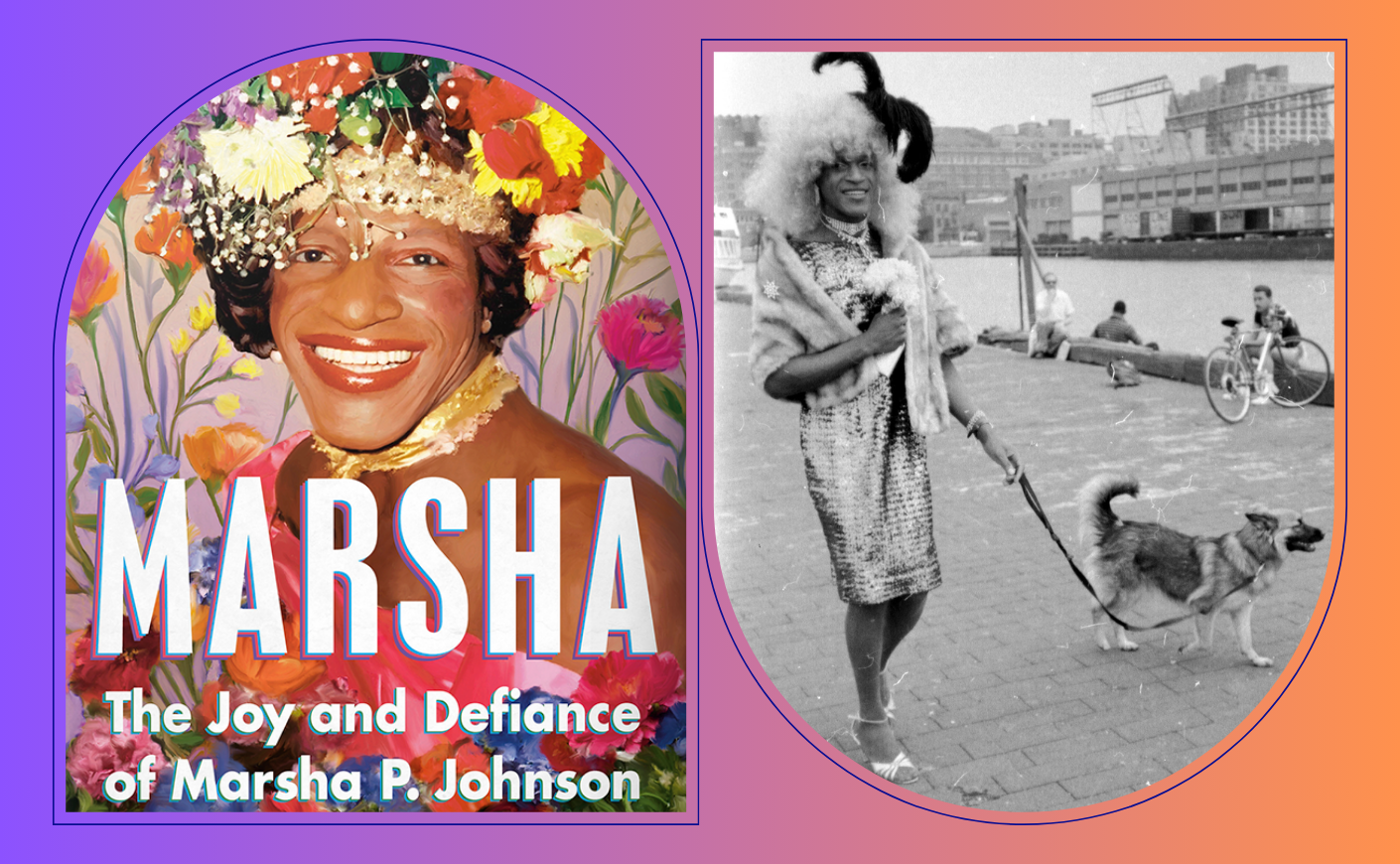Trans people are under attack across the United States, and these attacks are being launched by the most dangerous bully of all: an increasingly fascist executive branch empowered by a cowardly Congress. Since the beginning of their second term, the Trump administration has wasted no time in seeking to harm us: On day 1, the administration attempted to redefine biological sex, in direct opposition to established science, medicine, and law. And the attacks keep coming: Daily, we see news articles about trans people being deprived of fundamental human rights: freedom of movement, medical care, and an education free from discrimination.
These are harrowing times for trans people, to be sure. But as a Black trans woman myself — and now, as the author of the first biography of Black trans movement leader Marsha P. Johnson — I refuse to allow the administration’s brutal tactics to prevent us from celebrating our collective beauty.
Marsha is most widely known for her role in the Stonewall Uprising of 1969, when LGBTQIA+ people fought back against ritualized police violence, demanding the right to live like other Americans, with the right to dance, gather, gossip, and dream together. She is often remembered as one of the leaders of the uprising, among the first to fight back. The Trump administration is trying (and failing) to erase her legacy — they’ve taken her name off National Park Service websites — as part of its efforts to reassert the United States as a land for the very few, rather than for all its people.
But Marsha’s legacy is far bigger than Stonewall. I’ve been researching her life for over 20 years, and her story continues to offer lessons that have the potential to change the world, particularly in moments when conditions are harsh and human rights are under attack.
When Marsha first moved to New York City in 1963, she was one of many “street queens” — trans, nonbinary, and queer people who were unable to afford the safety of housing, and doing street-based sex work to survive on the streets. Many were there as a direct result of family exile, a threat that continues today, and places LGBTQIA+ youth at a 120 percent increased risk of homelessness. Yet together, they developed systems for creating safety — from warning each other of dangerous clients to pooling their resources to afford shared hourly hotel rooms. In these rooms, which they called “Hot Springs” because the radiators blasted year-round, they took care of each other — sharing beds, clothing, stories, and gossip. And they dreamed about what life could be like in another world — a world where they were seen, loved, respected, and cherished.
These dreams fueled Marsha for the rest of her life. They fueled her when she and others, including her dear friend and collaborator Sylvia Rivera, created Street Transvestite Action Revolutionaries (STAR), a collective that provided free and low-cost housing to some of New York City’s most vulnerable community members. These dreams propelled her when she joined with NYU students and others to occupy Weinstein Residence Hall after the university attempted to cancel LGBTQIA+ social gatherings. And they encouraged her when she traveled internationally as a performance artist with the theater troupe The Hot Peaches. These were triumphant moments and a testament to Marsha’s indomitable spirit and her belief that she was a promise, not a problem. Nothing that society did to her could make her believe otherwise.
Marsha refused to get small, apologize, or hide. She did not shrink in the face of the emergent AIDS crisis that claimed dozens of friends (and hundreds of thousands of lives in the U.S.); she stepped in to offer care. She did not diminish her needs in the face of routine street violence against trans people that included her suffering a severe gunshot wound; she found resources that allowed her to travel, rest, and recover. She did not acquiesce when she faced police violence; instead, she joked about all the different names she would offer police, depending on the day and her mood. Marsha didn’t just survive — she thrived, and she did so in conditions far harsher than many of us can imagine.
Her capacity to not let harsh realities dictate what she envisioned for her community makes her an essential role model for our current circumstances. Over the course of her life, Marsha looked at a landscape that lacked fundamental understanding of or provided care — whether gender affirming care, HIV/AIDS care, bail funds, or housing — for people like her. While others were understandably discouraged by these roadblocks, she took the opportunity to fill this void by imagining what could and should be, and then organized to make it a reality. We can take a lesson from Marsha as many of us navigate incredibly harsh, violent, and frightening circumstances. It is not a time for dreaming small. It is a moment when we must dream as big as the problems are. Marsha taught us — and expects — nothing less.
Tourmaline is an artist and the author of the national bestselling book MARSHA: The Joy & Defiance of Marsha P Johnson.









